NZXT H440 Silent Mid-tower Case Review
NZXT H440 Cooling Capabilities and Ventilation Options
The top rear has the new NZXT FN V2 140mm fan pre-installed as an exhaust fan but a smaller 120mm fan can also be installed here as well as a 140mm or 120mm radiator. Like in other high-end NZXT cases, the rear fan can be adjusted up or down for clearance and positioning. The mesh itself is a large honeycomb area that is protruding in the center area by a few millimetres to minimize turbulent air being pushed out which can create additional noise.
The lack of external drive bays frees up the entire front area for three 120mm fans or a 360mm radiator with the hard drive caddies removed. Two 140mm fans can also be used in place of the bottom two 120mm fans for a 240mm radiator or just as an intake fan. The mounting holes are the sliding type so it is flexible in accepting radiator mounting hole distances. The dust filter is magnetically held in place at the top and slide-locks in at the bottom part of the H440 front frame.
These new FN V2 fans have been redesigned specifically for better acoustic and thermal performance. The new fan frames allow air to pass around it, compared to the standard frame NZXT FN fans. The blade design is slightly different between the 120mm fans used on the front intake and the 140mm fan used for rear exhaust. The 140mm FN V2 has seven blades that have a more pronounced curve compared to the 120mm FN V2’s nine blades. The 120mm FN V2’s blades are also more straight at the tip compared to the curved 140mm.
Front NZXT FN V2 intake 120mm fan performance via ASUS FanXpert II:
Rear NZXT FN V2 140mm exhaust fan performance via ASUS FanXpert II:
The front intake fans run up to 1182 rpm while the larger rear exhaust fan spins up to 880 RPM. Both are reasonably quiet even at full bore and with the dampening material on the panel, the sound is further muted.
A separate dust filter for the bottom power supply intake is also available and it is pulled out from the rear. The feet elevates the entire H440 case 2.5cm off the ground so it can gather sufficient intake air for the power supply area and for the front intake area (through a groove in the front panel).
With the top panel removed, fan and radiator support for 360mm (3x120mm), 280mm (2x140mm) or 240mm (2x120mm) is available. All parts have to be mounted internally as there is only 20mm space left between the top panel and the chassis, leaving no room for a standard 25mm thick fan. Like the front area however, there is plenty of room to maneuver fan cables and route them properly. Airflow is not an issue, especially with three fans for intake. The HDD cages, which typically obscure the path of the air flow now also have a lower profile. The high airflow slot covers and additional ventilation slots in the rear ensure that warm air and dust is pushed out.
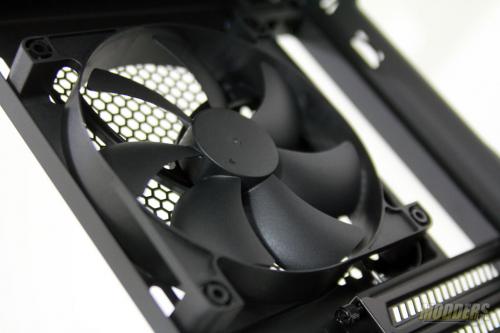
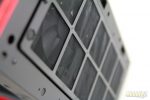
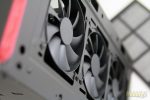
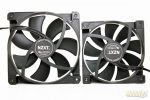
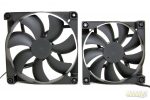
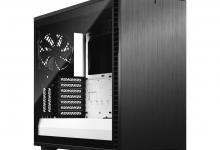
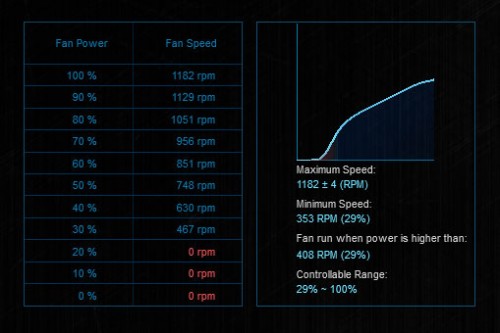
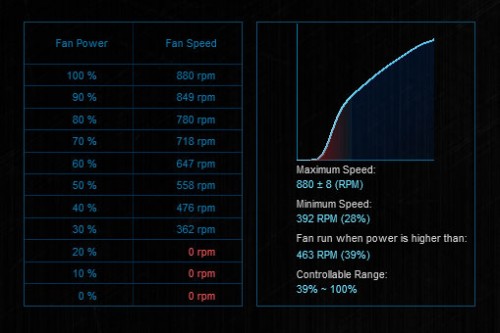
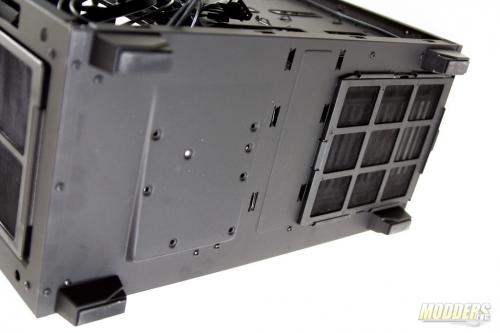
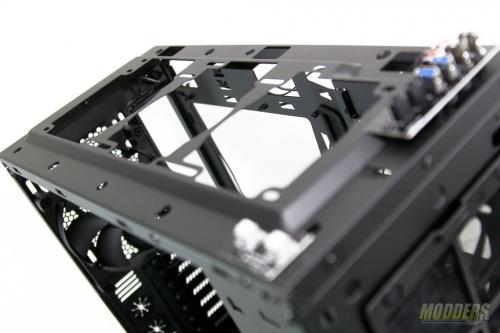

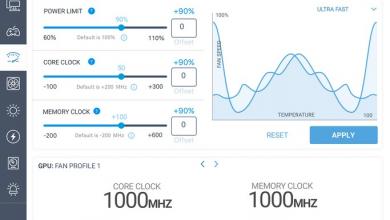

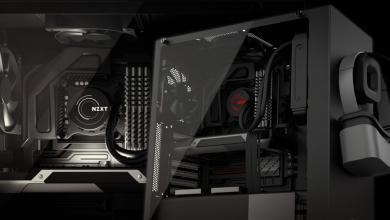
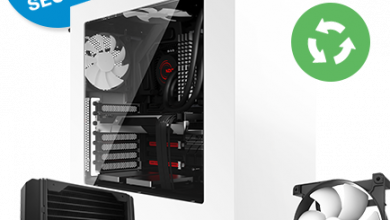
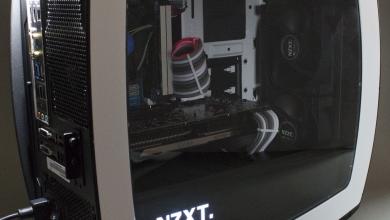

hej,
I have G skill Ripsaw ram that measures 40mm high and hopre to use the phanteks ph tc14pe heatsink which it appears you have done.
However you are not mounting the front fan (over the RAM) . I believe the fan can be put on higher up the heatsink to allow for clearance, but by it’s absence in the build I am assuming that the heatsink and fan is toooooo tall for this case?
thanks for the review btw
Hi, I actually did not put in the front fan because I could not find the little plastic fan holder thingies that go with the TC14PE when I was taking a photo. Total spec clearance is 180mm for the CPU cooler. Going by Phanteks’ measurements on their product page, with dead on center, CPU cooler total height is 171mm with 32.92mm clearance for RAM at the bottom. 40mm less 32.92mm leaves 7.08mm, add that to 171mm height you get 178.08mm. Also you can measure with RAM height 40mm + Phanteks 140mm fan height so that is still equal 180, although RAM height measurements include the connector so that is a few mm less. It might be tight but it should fit.
I traded the case for a keyboard so I don’t have it anymore unfortunately, lemme ask around to verify. I f@c#!N hate these damn heatspreaders ruining standard RAM heights. They are not even necessary on DDR3 considering the voltages used.
Thanks Ron …..that would be appreciated.